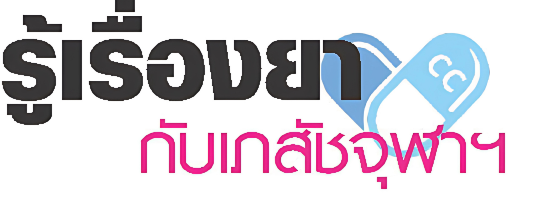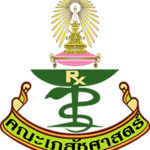Developing Herbal Remedies for the Benefit of Thai People

All About Medications with Chulalongkorn Pharmacy: Developing Herbal Remedies for the Benefit of Thai People
Monday, May 5, 2025, 13:27
Using herbs to treat diseases and alleviate various symptoms has been the wisdom of mankind for thousands of years. From using branches, leaves, and stems to boil and consume, we have now developed herbal medicines to be more standardized, making them easier to consume and use in forms such as tablets or capsules. In terms of usage, the general public may view herbs as relatively safe products because they come from nature and are easily accessible, so it is not surprising that the industry in this area continues to grow.
From a policy perspective, herbs are the answer to drug security. We don't have to go back too far; just five years ago, we had to wait for COVID antiviral drugs from abroad, and even then, it wasn't enough. Fortunately, we had Andrographis paniculata (Fah Talai Jone) to help us get by, but we learned from that time that the safety standards, quality of herbal medicine products, and systematic collection of clinical efficacy data still need to be improved.
The decision to use herbal medicines differs significantly between the public and medical personnel. While the public may see herbs as being in the same category as nature and associate them with safety, it must be said that this is a misunderstanding.
First of all, it must be emphasized that if herbs have a therapeutic effect on the body, or any effect at all, it means that the herb must contain active chemicals. However, these chemicals are produced by nature, and these chemicals can cause side effects, adverse reactions, and allergies, just like conventional chemical drugs. The use of herbal products, both medicinal and non-medicinal, may cause allergies, side effects, and interactions with diseases or medications that the patient is taking. People with underlying diseases or medications that they use regularly need to check before using any herbs to ensure that they can be used with their regular medications to ensure maximum safety.
An example of a drug-herb interaction that was of great concern during the recent COVID period was that patients taking the anticoagulant warfarin, when using herbs such as Andrographis paniculata or turmeric, had abnormal blood clotting values. Some needed to have their warfarin dose adjusted.
From the writer's direct experience, a patient had abnormal liver values. After questioning, the most likely cause was the herbs they were taking, which will not be named to prevent misunderstanding of that particular herb. Let's just say that herbs can have adverse reactions and side effects similar to modern medicine. Therefore, when using them, it is necessary to observe any abnormalities that occur and consult a doctor or pharmacist immediately if any abnormalities are found.
From the national level of effort, various agencies are trying to make Thai herbs develop by leaps and bounds, but it seems that there are still some gaps related to quality and safety. The latest policies are being attempted, but seem to be lacking and may still need additional support in some areas, such as developing the potential of entrepreneurs, which is something the state must help with to ensure that the quality of herbal products meets standards. A significant number of entrepreneurs recognize that the quality of herbal products and medicines is important but still lack knowledge and budget for development and quality control. For example, the effectiveness of herbs depends on the amount of important substances, which varies depending on several factors such as the place of cultivation, the growing season, the harvesting process, and the production process, resulting in different amounts of important substances.
Furthermore, there may still be a lack of knowledge in controlling the amount of these important substances. Another problem is the contamination of microorganisms in herbal products, which can be solved in several ways, such as supporting infrastructure to reduce the amount of contamination in herbal products easily. Some budget may be allocated to support some service fees. If the government helps support entrepreneurs in earnest in development, it will lead to sustainability and development in the Thai herbal industry.
However, all of this does not mean that the author does not support the use of herbs in any way. On the contrary, as a Thai pharmacist, I would like herbal medicines to be used for the right disease, the right person, and at the right time, to achieve maximum effectiveness and safety, and to make herbs more known internationally, and to reduce the use of modern medicine in some cases. It must be admitted that, at the moment, there are still gaps in knowledge and opportunities for development that everyone in the drug industry that is developing from herbs needs to speed up work to ensure maximum safety and drug security for the country in the future.
Assoc. Prof. Dr. Nattada Areepiam and Assoc. Prof. Dr. Bodin Tiwasuwan
Faculty of Pharmacy Chulalongkorn University
เราใช้คุกกี้เพื่อพัฒนาประสบการณ์การใช้งานเว็บไซต์ของคุณให้ดียิ่งขึ้น คุณสามารถจัดการความเป็นส่วนตัวของคุณได้เองโดยคลิกที่ ตั้งค่า
